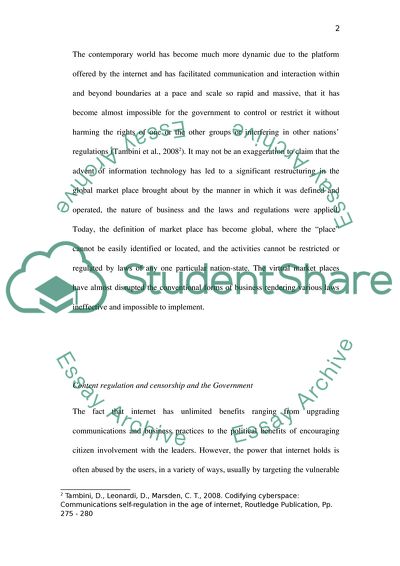Cite this document
(Cyber Law - Content Regulation and Censorship in the Government Article, n.d.)
Cyber Law - Content Regulation and Censorship in the Government Article. Retrieved from https://studentshare.org/law/1743087-cyberlaw
Cyber Law - Content Regulation and Censorship in the Government Article. Retrieved from https://studentshare.org/law/1743087-cyberlaw
(Cyber Law - Content Regulation and Censorship in the Government Article)
Cyber Law - Content Regulation and Censorship in the Government Article. https://studentshare.org/law/1743087-cyberlaw.
Cyber Law - Content Regulation and Censorship in the Government Article. https://studentshare.org/law/1743087-cyberlaw.
“Cyber Law - Content Regulation and Censorship in the Government Article”, n.d. https://studentshare.org/law/1743087-cyberlaw.


